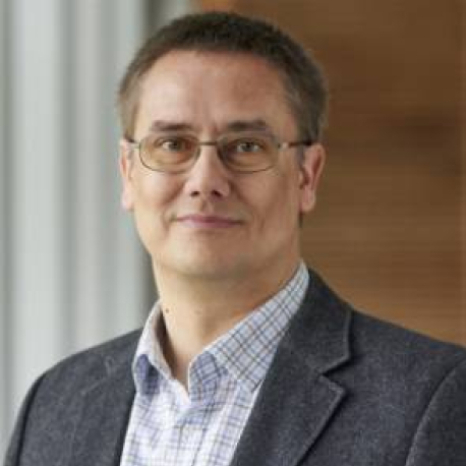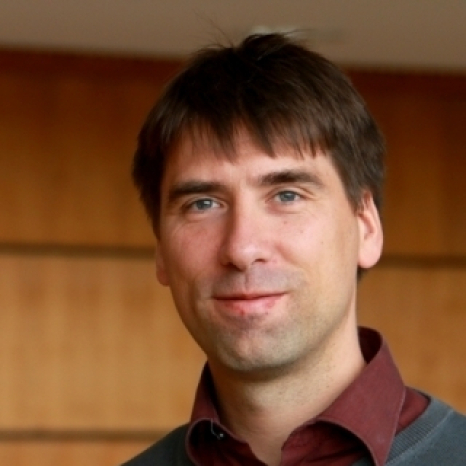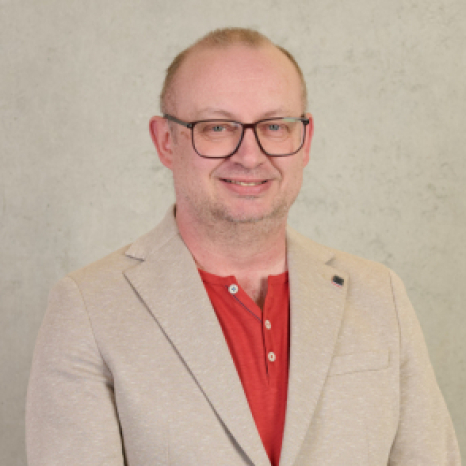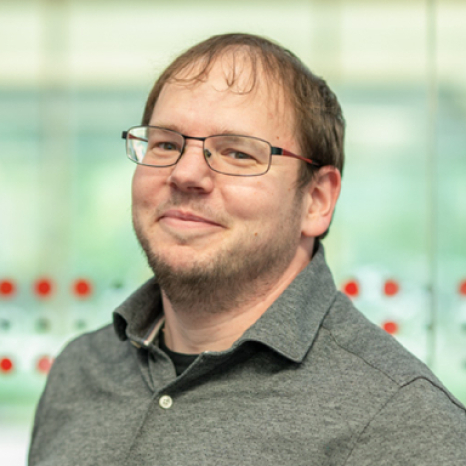Institute for Bioanalysis
The IBICO
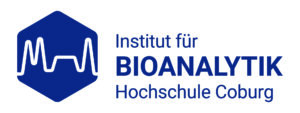 The Institute for Bioanalysis (IBICO) at Coburg University of Applied Sciences combines excellent expertise in various fields of research. The close cooperation of seven professorships creates a dynamic synergy that makes IBICO an outstanding partner for industrial contract work and joint applications for third-party funding. With interdisciplinary know-how and a broad spectrum of analytical methods, the IBICO covers applications in the fields of One Health, ecotoxicology, theranostics and personalized medicine. The close integration of the specialist fields of biology, chemistry, bioanalysis and bioinformatics enables holistic and innovative approaches to solutions.
The Institute for Bioanalysis (IBICO) at Coburg University of Applied Sciences combines excellent expertise in various fields of research. The close cooperation of seven professorships creates a dynamic synergy that makes IBICO an outstanding partner for industrial contract work and joint applications for third-party funding. With interdisciplinary know-how and a broad spectrum of analytical methods, the IBICO covers applications in the fields of One Health, ecotoxicology, theranostics and personalized medicine. The close integration of the specialist fields of biology, chemistry, bioanalysis and bioinformatics enables holistic and innovative approaches to solutions.
Research areas by working group:
Working group "Funke"
The main scientific interest of the Funke group is the investigation of peptides and proteins for application-related questions, in particular the analysis of protein-protein interactions and their therapeutic prevention. For the in-vitro characterization of protein-protein interactions, it uses a broad spectrum of biochemical and biophysical methods, such as evolutionary biotechnology (especially phage display), protein expression and purification using chromatographic methods, ELISA, cell culture tests and many more.
Projects and publications
Research areas
- Protein-protein interactions
- Therapy and diagnosis of neurodegenerative diseases
- Prevention of bacterial or viral infectious diseases
- Biomarker detection and development
Courses
- Biology
- Molecular biology and genetics
- Science management
- Neurodegenerative diseases
- Bioethics and medical ethics
Working group "Flechsig"
The main interest of the Flechsig group is electrochemical biosensors for DNA and RNA based on directly heated gold working electrodes with self-assembled monolayers of DNA probes. The kinetic isotope effect in DNA-SAMs and the use of electrochemical quartz crystal microbalances to study viscoelasticity are also being investigated. Further research work is concerned with the voltammetric trace analysis of biocides in building materials and the ultra-trace analysis of platinum metals in exhaust gas condensates from modern car engines.
Research areas
- Electrochemical analysis methods
- Biosensors with DNA and RNA
- Thermoelectrochemistry
- Ultra-trace analysis of heavy metals and small organic molecules
- Environmental and process analytics
Courses
- General & Inorganic Chemistry
- Organic and analytical chemistry
- Trace analysis in forensics and environmental chemistry
- Chemical sensors and nanobiotechnology
- Laboratory automation in medical chemistry
Projects and publications
Working group "Hildebrand"
The main interest of the Hildebrand group is molecular aging research and skin biology for applications in the cosmetics industry and pharmaceutical tumor therapy. In order to investigate the molecular causes of cellular aging and tumorigenesis, the Hildebrand group uses methods for transcriptome, proteome and metabolome analysis, as well as bioinformatic analysis. In addition, the focus is on drug identification and mode-of-action analysis. In addition, the potential of non-coding RNAs in diagnostics is being researched using NGS.
Projects and publications
Research areas
- Molecular cell biology of aging and tumor biology
- Transcriptome, proteome and metabolome analysis
- Function and use of non-coding RNAs
- Cell culture technology
- Biomarker detection and development (bioinformatics)
Courses
- Biology and biochemistry
- Clinical analytics
- Pharmacology and toxicology
- Bioscience seminar and innovation management
- Epigenetics and non-coding RNAs
Working group "Kalkhof"
Stefan Kalkhof is both head of the university group "Instrumental Bioanalysis" and deputy head of the Fraunhofer working group "Protein Biomarkers", Department of Therapy Validation at the Fraunhofer Institute for Cell Therapy and Immunology IZI in Leipzig. The Kalkhof working group at Coburg University of Applied Sciences is concerned with proteomics, the identification of protein biomarkers, the characterization of selected proteins (structural analysis, modifications, processing) and the characterization of low-molecular molecules (e.g. protein ligands). Suitable multi-omics strategies (in particular LC-MS/MS) and spectroscopic methods (UV-VIS, FT-IR) are used for these analyses.
Research areas
- Protein interaction
- Protein structure
- Protein modifications
- Mass spectrometry (LC-MS)
- Proteomics
- Biomarkers
Courses
- Analytical chemistry
- Biochemistry
- Protein analysis
- Spectroscopy
- Separation techniques
- Instrumental analytics
Projects and publications
Working group "Noll"
The Noll group investigates the structure and function of complex microbial communities (bacteria, archaea, fungi, algae, eukaryotes) in natural and anthropogenic ecosystems. In addition to topics of microbial ecology in forestry and agriculture, the human microbiome and the transmission of pathogenic microorganisms are also addressed. The Noll group uses a wide range of methods such as high-throughput sequencing, metaproteome analysis, qPCR, cultivation-dependent and cultivation-independent activity detection, imaging techniques and high-resolution flow cytometry.
Projects and publications
Research areas
- Environmental Microbiology – Molecular Microbial Ecology
- Material resistance to microorganisms
- Antimicrobial substances: Antibiotics / biocides / essential oils and measures against biofilms
- Food microbiology
Courses
- Microbiology
- Molecular biological analysis
- Food microbiology
Equipment/skills
Working group "Pflugmacher-Lima"
The main interest of the Pflugmacher Lima working group is the investigation of interactions between anthropogenic chemicals and natural toxins in the environment. This involves biotransformation and oxidative stress reactions in organisms and the development of bioassays. The working group has developed the "green liver" and the "plant gill". Systems that use aquatic plants and plant residues to purify water. The range of methods includes photometric methods for measuring enzyme activities, the analysis of cell contents and bioanalysis using UPLC and LC-MSMS.
Research areas
- Cyanobacteria and cyanotoxins
- Construction chemistry and micro-nanoplastics
- Pharmaceuticals and pesticides
- Biotransformation and oxidative stress
- Green liver and plant gill systems
Courses
- Organic and environmental chemistry
- Fundamentals of ecology and ecotoxicology
- Applied ecotoxicology
- Planetary health and the contribution of ecotoxicology
- Applied nature conservation and sustainability
Working group "Simm"
The main interest of the Simm working group is applied bioinformatics for the evaluation of high-throughput data sets(omics). AI models and bioinformatic methods are developed for the in-silico identification of biomarkers in the areas of One Health, Smart Farming and medical theranostics. Explainable AI models are used to assess the importance of meta-data and their influence on biomarkers. The portfolio of methods includes: Gene Set Enrichment Analysis, Differential Expression, eXplainable AI, Clustering, Multiple Sequence Alignment and Phylogenetic Trees.
Research areas
- Bioinformatic high-throughput analyses (omics)
- Explainable artificial intelligence
- Statistical analyses
- Biomarker identification in medicine
- Smart Farming and One Health
Courses
- Bachelor: Algorithms of sequence analysis
- Bachelor: Basics for Data Science
- Bachelor: AI for models and networks
- Master: Statistics and Bioinformatics
- Bachelor&Master: Electives for Bioinformatics One Health
Equipment/skills
Equipment
The Institute of Bioanalysis has high-quality equipment consisting of four laboratories(chemistry, microbiology, biochemistry/molecular biology, cell culture). The laboratories are approved for safety level 2 experiments in accordance with the German Ordinance on Biological Substances (BioStoffV) and the Genetic Engineering Act (GenTg) 2 (in accordance with BioStoffV). All four laboratories have solid basic equipment with safety/sterile workbenches, centrifuges, refrigerated centrifuges, water baths, shakers, incubators and microscopes. There are countless possibilities for protein and DNA analysis, microbiological and molecular biological experiments as well as analyses in the physico-chemical and chromatographic fields.
Special equipment in the laboratories:
- Orbitrap
- NanoHPLC
- IR spectrometer
- GC-MS
- MobileGC
- UPLC system
- ICP-MS
- Incubators with optional carbon dioxide supply
- PCR and qPCR devices (Biorad)
- FLUOstar Optima multifunctional plate reader
- Photometer
- Fluorescence microscope with EM-CCD camera
- Flow cytometer (Cytostar)
- Casy counter
- Potentiostat/Galvanostat µAutolab III with Hg multi-mode electrode (Metrohm-Autolab)
- Potentiostat/galvanostat PGSTAT12 with impedance spectroscopy (Metrohm-Autolab)
Furthermore, the IBICO maintains an internal, self-managed high-performance server cluster as well as further access to server capacities of the Center for Responsible Artificial Intelligence (CRAI). The current server cluster comprises roughly >100 CPU cores and GPU cores, as well as ~2 TB of RAM. In addition to ~50 TB of fully encrypted storage space, ~100 TB of additional storage space is also secured via daily backups. This means that both computationally intensive routine bioinformatics analyses from Omics and artificial intelligence models for classification can be performed.
Competencies
For protein, metabolite, RNA and DNA analysis at the prokaryotic and eukaryotic level, IBICO offers a wide range of interdisciplinary bioanalytical methods. The possibilities range from processing, measurement and analysis to data evaluation and post-hoc analysis for environment and health in the course of One Health.
range of methods:
- Protein-protein interactions
- Phage display
- Directed evolution methods for protein optimization
- Biomarker development, detection and identification
- ELISA
- Metabolite and protein quantification and modification (SILAC (>3000 proteins), SILAM, TMT (up to 10-plex), LFQ)
- RNA and protein structure analyses, predictions and interactions
- Antibody development and production according to GLP/GMP (at Fraunhofer IZI)
- Metagenomic analyses of taxonomic and functional composition
- Material tests and resistance
- Analysis of microbial adaptation to antibiotics, biocides and natural substances
- Stable isotope sampling (SIP)
- Fluorescence in situ hybridization (FISH) and immunofluorescence staining
- Cell culture for drug analysis (cell-based assay systems)
- Cultivation: primary cells, 3D cell culture and organoids
- Omics expression analysis
- NGS and microarrays
- ncRNA analyses and validation (siRNA and lentiviral knockdown of genes)
- Flow cytometry and histology
- Image analysis
- Explainable AI models for supervised approaches
- Unsupervised machine learning approaches
- Phylogenetic and sequence-based analyses
- Electrochemical analysis methods
- LC-MSMS analysis of pharmaceuticals, pesticides and cyanobacterial toxins
- Bioassay systems with terrestrial and aquatic plants
- Bioassay systems with various invertebrates (e.g. daphnia, enchytraenids, tubifex, macrophytes)
- Biotransformation enzyme measurements (P-450, GST)
- Measurement of oxidative stress markers (GSH, tocopherols)
- Measurement of oxidative stress enzymes (POD, CAT, GPx)
Job advertisements
The IBICO offers students of bioinformatics, bioanalysis, ecotoxicology or related fields of study in the life sciences the opportunity to write their Bachelor's or Master's thesis. If you are interested, please send your unsolicited application to IBICO-info@hs-coburg.de , stating your chosen research group. Current vacancies for scientific staff and doctoral/post-doc positions can be found here.



